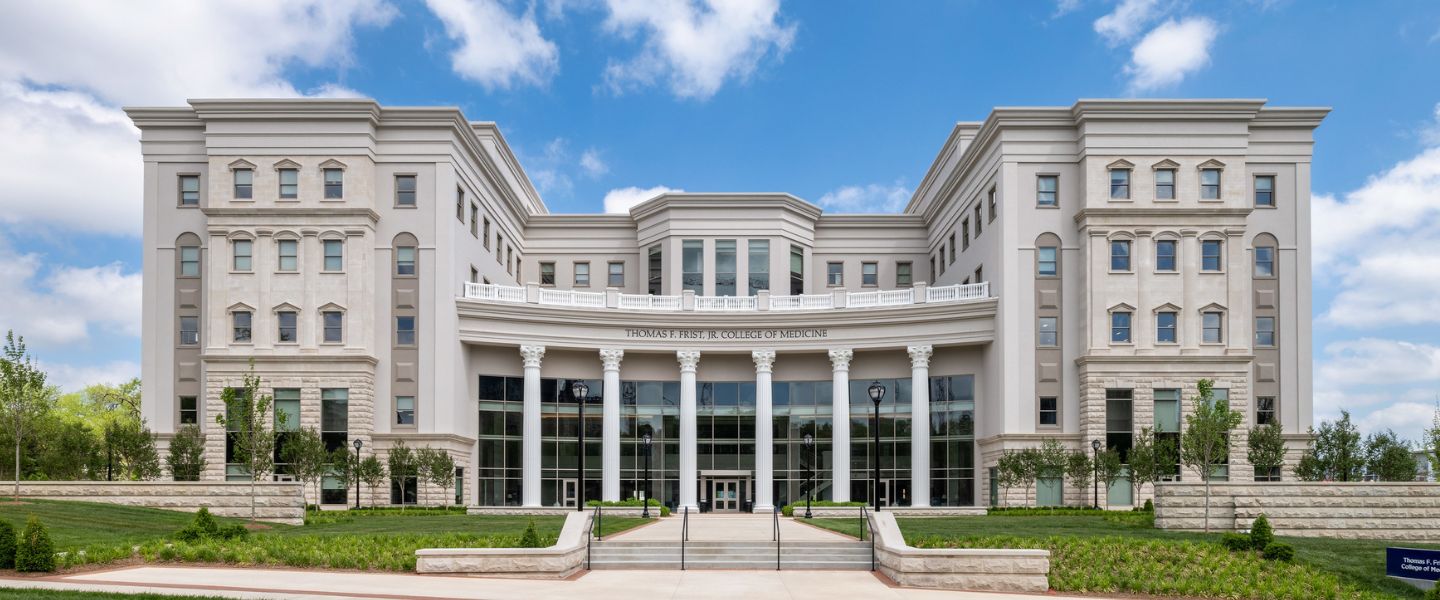Inaugural symposium explores how AI and compassion can shape whole-person care
The future of health care took shape in a conference room at Belmont University’s Thomas F. Frist Jr. College of Medicine, where more than 100 health care innovators, technology leaders and policymakers gathered for “The Whole-Person Health Care Journey: Empowered by AI, Driven by Compassion.” The symposium marked the soft launch of the Belmont Collaborative for Health Systems Innovation (BCHSI).
The daylong event tackled one of health care’s most pressing challenges: how to harness artificial intelligence while maintaining the compassion and human connection at the heart of medicine.
Breaking Down Silos, Building Up Solutions
The opening keynote set an ambitious tone with a fireside chat between Dr. Douglas Slakey,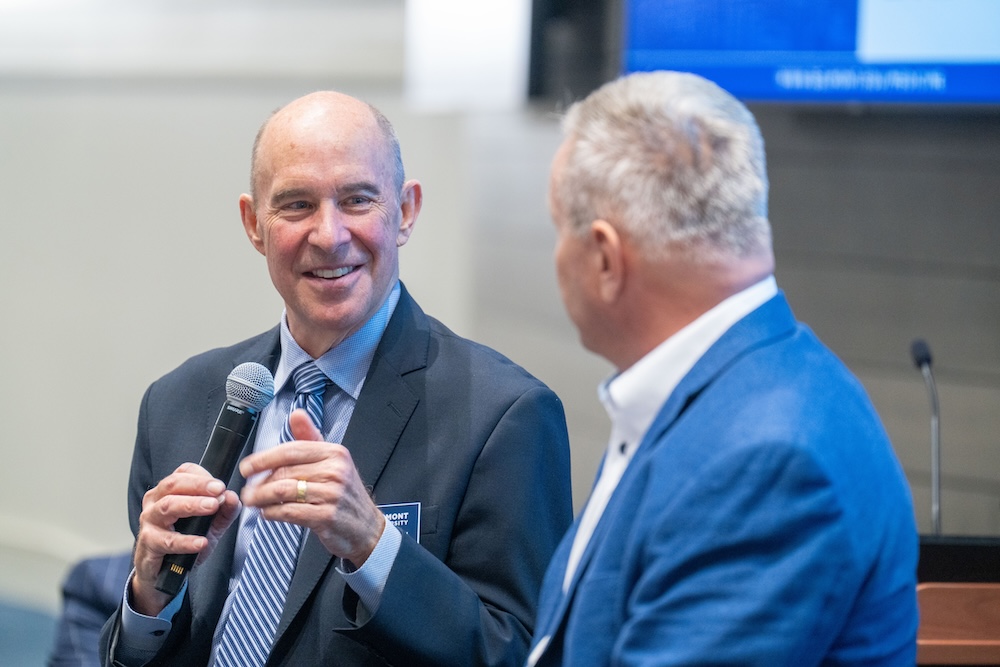 HCA Healthcare Health Systems Science Endowed Chair and AI and Technology in Health Care Section Lead at the Thomas F. Frist, Jr. College of Medicine, and Greg Aaron, Oracle group vice president and market leader for the U.S. Provider Enterprise Group.
HCA Healthcare Health Systems Science Endowed Chair and AI and Technology in Health Care Section Lead at the Thomas F. Frist, Jr. College of Medicine, and Greg Aaron, Oracle group vice president and market leader for the U.S. Provider Enterprise Group.
Aaron outlined Oracle’s $30 billion vision to reimagine health care through AI, describing how technology can unlock decades of trapped health care data and ease the cognitive burden on clinicians.
"Our commitment to this industry is open and interoperable," Aaron emphasized. "Make the data available, let innovation happen."
He also shared results from a recent pilot program that grew organically from 10–20 doctors to 187 clinicians, generating nearly 28,000 AI-assisted clinical notes in just 133 days — with no formal training required. The rapid adoption, Aaron said, signals both the technology’s usability and health care workers’ appetite for tools that improve daily work.
But as Dean Dr. Anderson Spickard emphasized, true transformation requires more than technology.
"This future can't be built by an institution alone. It's done in community, where we can ignite bold thinking, foster partnerships and develop practical solutions to total-person care."
This philosophy of community-driven innovation became the foundation for launching BCHSI and shaped every aspect of the day's discussions.
From Theory to Practice
The symposium balanced visionary thinking with practical application. Following the keynote, Slakey outlined BCHSI’s role in the health care innovation landscape and how Belmont can fill gaps in university-based collaborations.
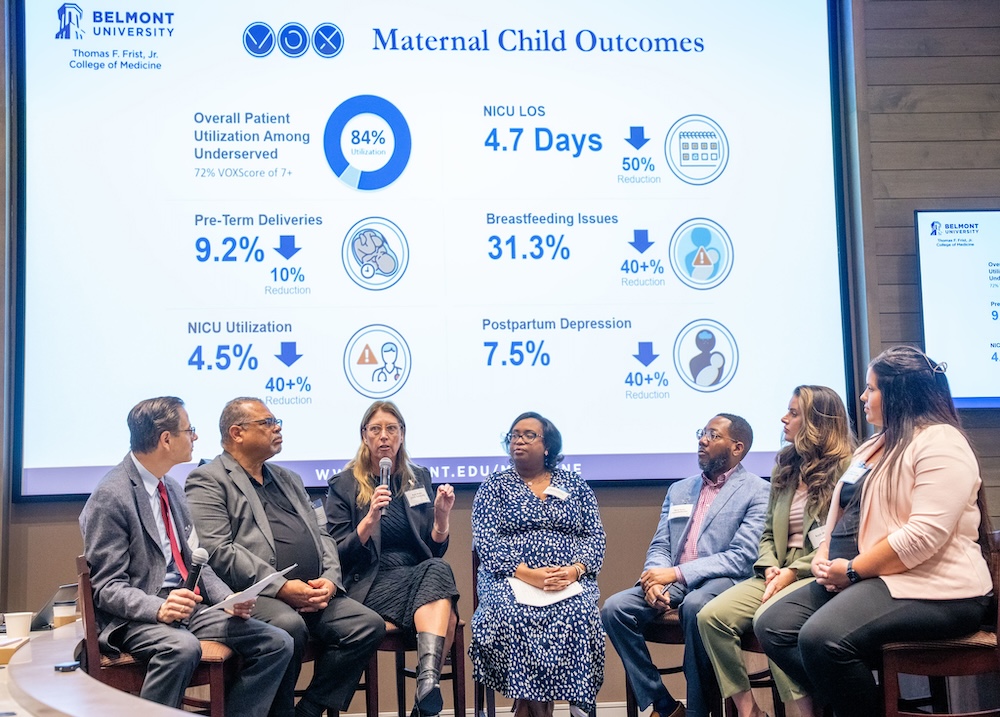 A panel on maternal health showcased the collaborative’s approach, bringing together community leaders, technology vendors and providers to design scalable, data-driven programs that support holistic care throughout the maternal journey.
A panel on maternal health showcased the collaborative’s approach, bringing together community leaders, technology vendors and providers to design scalable, data-driven programs that support holistic care throughout the maternal journey.
Another highlight was “AI in Health Care: Revolution or Evolution?” — an interactive panel moderated by Bruce Brandes, CEO of Mindyra Health. Panelists included leaders from Fortune 500 employers, major payers, multistate health systems and emerging technology companies. The session explored the realities of AI implementation, separating genuine transformation from hype.
During the networking lunch, attendees toured Belmont’s 60,000-square-foot simulation center, seeing firsthand how its data capture capabilities can support collaborative research projects beyond medical education.
Afternoon sessions turned to building sustainable partnerships, with conversations on funding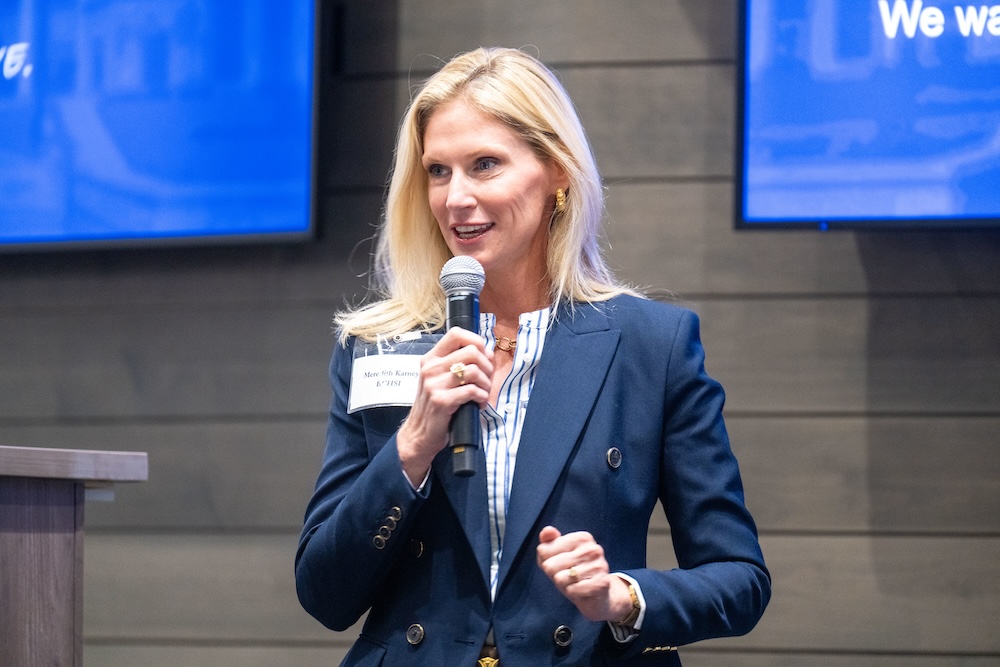 models, governance structures and intellectual property — the nuts-and-bolts issues that determine whether innovations take hold.
models, governance structures and intellectual property — the nuts-and-bolts issues that determine whether innovations take hold.
“It was inspiring to witness the depth of engagement and shared purpose throughout the day,” Slakey said. “The vision behind the Belmont Collaborative for Health Systems Innovation is only possible because of passionate and forward-thinking colleagues who want to be part of the journey.”
Nashville's Unique Advantage
Speakers, including U.S. Sen. Marsha Blackburn, highlighted Nashville’s unique position as a health care innovation hub, citing the city’s concentration of companies, academic institutions and policy expertise.
For Belmont, this is both an opportunity and a responsibility. The Thomas F. Frist, Jr. College of Medicine is dedicated to cultivating physician-leaders who embrace a whole-person approach to healing — a mission aligned with the symposium’s vision of health care empowered by AI but driven by compassion.
The collaborative’s emphasis on bridging technology with human-centered care reflects the medical school’s commitment to training physicians who can thrive in an AI-enhanced environment while maintaining empathy and service-oriented leadership.
Building Momentum for Transformation
The Belmont Collaborative for Health Systems Innovation represents more than an academic initiative — it's positioning the University as a convening force for health care transformation. By bringing together diverse stakeholders around shared challenges, Belmont is demonstrating that meaningful change in health care requires the kind of interdisciplinary collaboration that universities are uniquely positioned to facilitate.
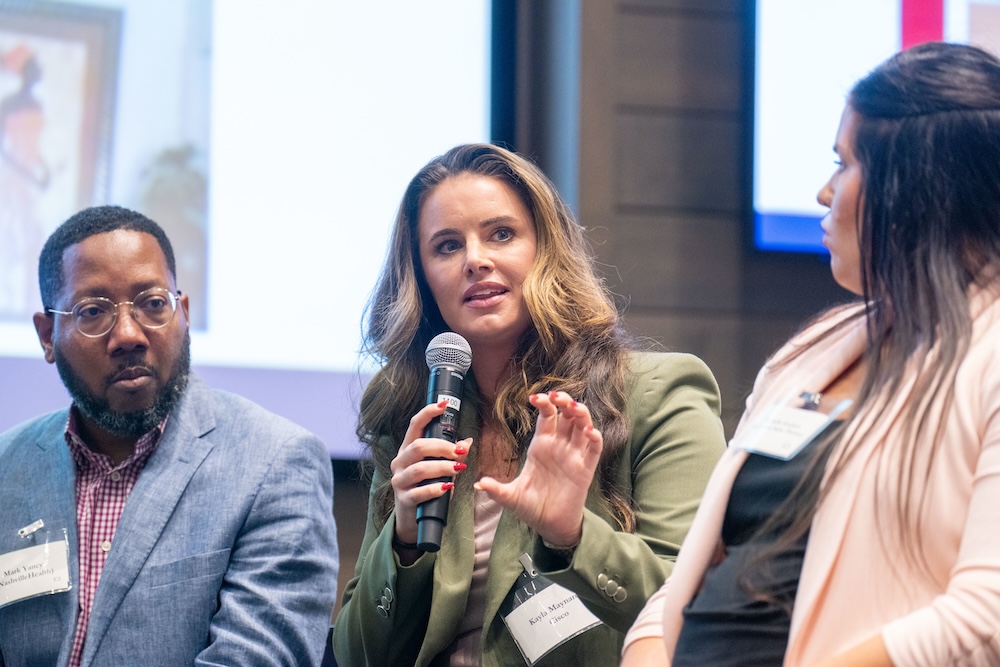
"I'm thrilled that the symposium resonated so strongly with so many stakeholders — each committed to empowering people to be in more control of their own health,” Slakey reflected. “We're just beginning to tap into the potential of this community, and with BCHSI Fellows and partners supporting the mission, the future looks incredibly bright."
Slakey will continue this conversation Oct. 1 at the Global Health Innovators Summit in Nashville, where he will be a featured speaker.
As health care stands at a pivotal moment between technological possibility and human need, Belmont is positioning itself not just as an observer of change, but as an active architect of health care's more compassionate, technologically-empowered future.
To learn more about the Belmont Collaborative for Health Systems Innovation or to become a partner, visit belmont.edu/health-systems-science.
Learn More
Learn more about the program in this story

